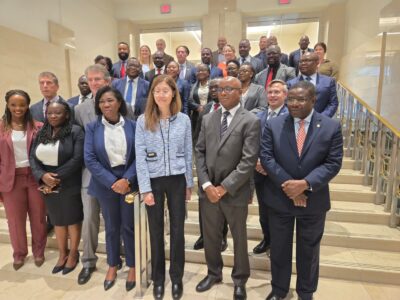Africa’s US$824 billion debt burden and opaque resource-backed loans have hindered its potential, warns the African Development Banks (AfDB) president Akinwumi Adesina.
Adesina noted that Africa’s immense economic potential was being undermined by non-transparent resource-backed loans that complicated debt resolution and compromised countries’ future growth.
He was speaking at the Africa Summit taking place on the sidelines of the International Monetary Fund and World Bank2024 Spring Meetings.
“I think it is time for us to have debt transparency accountability and make sure that this whole thing of these opaque natural resource-backed loans actually ends, because it complicates the debt issue and the debt resolution issue,” Adesina said.
Read more: Chinese state firm agrees US$400m loan with Niger junta in return for oil
He noted the challenges posed by Africa’s ballooning external debt, which reportedly reached US$824 billion in 2021, with countries dedicating 65 percent of their GDP to servicing these obligations.
Adesina said the continent would pay US$74 billion in debt service payments this year alone, a sharp increase from US$17 billion in 2010.
He also criticised the “Africa premium” that countries pay when accessing capital markets, despite data showing that Africa’s default rates are lower than those of other regions.
Adesina called for an end to this risk perception, which he said led to higher borrowing costs for African nations.
He also stressed the importance of putting in place an orderly and predictable way of dealing with Africa’s debt, urging for faster implementation of the G20 Common Framework.
WARNING! All rights reserved. This material, and other digital content on this website, may not be reproduced, published, broadcast, rewritten or redistributed in whole or in part without prior express permission from ZAMBIA MONITOR!












Comments